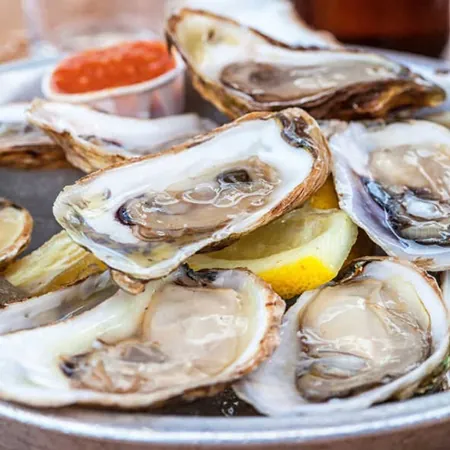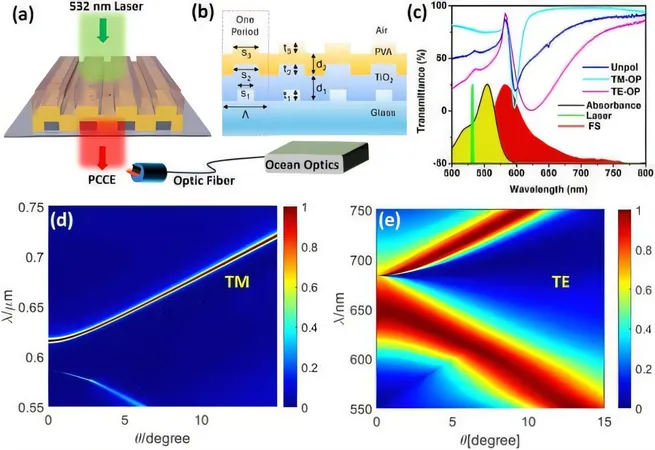
Breakthrough Discovery: Oyster Blood Protein Offers New Hope Against Antibiotic-Resistant Superbugs!
2025-01-21
Author: Siti
Introduction
A groundbreaking study from Australia's Southern Cross University (SCU) has unveiled a remarkable protein in the blood of Sydney rock oysters that could turn the tide in our battle against antibiotic-resistant superbugs. This revolutionary finding, published recently, underscores the urgent need for innovative solutions to combat one of global health's most daunting threats.
Laboratory Tests
The researchers conducted laboratory tests that demonstrated this oyster-derived protein's ability to effectively eliminate dangerous bacteria, specifically Streptococcus pneumoniae and Streptococcus pyogenes—culprits behind serious conditions such as pneumonia and strep throat. Most notably, the study revealed that this protein enhances the potency of certain antibiotics, amplifying their effectiveness by a staggering factor of two to 32 times against notorious pathogens like Staphylococcus aureus and Pseudomonas aeruginosa.
The Rising Threat of AMR
With antimicrobial resistance (AMR) rising to epidemic levels, leading organizations like the World Health Organization warn that infections no longer respond to standard treatments, resulting in potential global health catastrophes. The emergence of AMR bacteria has increased the risk of severe illness and even death, necessitating urgent intervention.
Combatting Biofilms
Excitingly, the SCU research team found that the oyster protein can also combat biofilms—clusters of bacteria that stick together, shielding themselves from both antibiotics and the human immune system. Co-author Kirsten Benkendorff noted, "The oyster hemolymph proteins were found to prevent biofilm formation and disrupt existing biofilms, ensuring that bacteria remain susceptible to antibiotic treatment even at lower doses."
Safety and Future Implications
Importantly, the study indicates that this protein is not toxic to human cells, paving the way for the optimization of a safe and effective antibiotic derived from oyster blood. The implications of this discovery could revolutionize the pharmaceutical landscape as researchers collaborate with the aquaculture industry to harness the healing powers of the ocean.
Conclusion
As the world grapples with rising superbug threats, this promising research could be the beacon of hope that leads to new treatments and methodologies in the fight against antibiotic resistance. Stay tuned as we follow this exciting development and its potential to redefine healthcare in the face of one of the most pressing challenges of our time!



 Brasil (PT)
Brasil (PT)
 Canada (EN)
Canada (EN)
 Chile (ES)
Chile (ES)
 Česko (CS)
Česko (CS)
 대한민국 (KO)
대한민국 (KO)
 España (ES)
España (ES)
 France (FR)
France (FR)
 Hong Kong (EN)
Hong Kong (EN)
 Italia (IT)
Italia (IT)
 日本 (JA)
日本 (JA)
 Magyarország (HU)
Magyarország (HU)
 Norge (NO)
Norge (NO)
 Polska (PL)
Polska (PL)
 Schweiz (DE)
Schweiz (DE)
 Singapore (EN)
Singapore (EN)
 Sverige (SV)
Sverige (SV)
 Suomi (FI)
Suomi (FI)
 Türkiye (TR)
Türkiye (TR)
 الإمارات العربية المتحدة (AR)
الإمارات العربية المتحدة (AR)